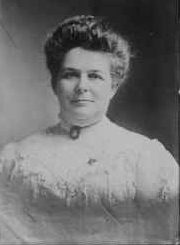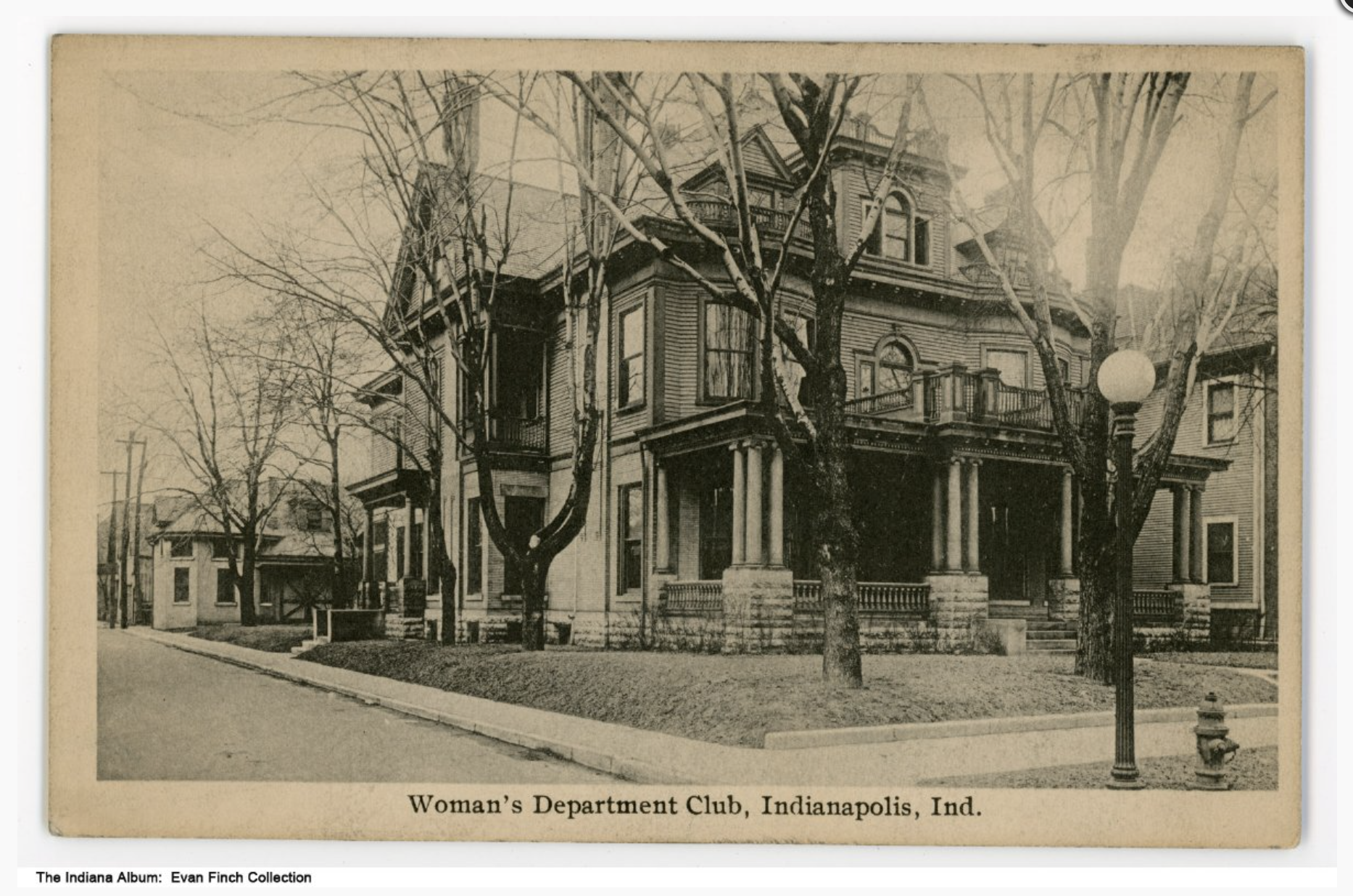
Photo info …
Credit: Jesse McWhirter via Find A GraveView Source
(Oct. 1, 1859-Dec. 10, 1952). Club woman, civic leader, and bank director, Luella Smith was born in Perrysville, Indiana as the only child of Methodist minister Reverend Hezekiah Smith Jr. and Susan Davis Smith. She graduated from East Tennessee Wesleyan University in Athens, Tennessee. There she met Felix Tony McWhirter, then mayor of Athens. The couple married in 1878 and had four children.

The McWhirters moved to Greencastle, Indiana, where Felix joined the English Department at DePauw University and earned a PhD. They moved to Indianapolis in 1888. In 1900, Felix founded the Peoples State Bank (later , acquired by Fifth Third Bank in 2001). Luella served as one of the bank’s directors from its founding, the first woman bank director in Indiana.
Luella McWhirter became involved in civic and community causes upon moving to Indianapolis. She became a leader in Indiana women’s organizations with wide-ranging interests in religion and temperance, woman’s suffrage and democracy, child and community welfare, education, and the arts. Governor , in 1908, appointed her to represent Indiana at the National Congress of Mothers. In 1912, she became president of the Indiana Federation of Clubs.
That same year she founded and directed the of Indianapolis. McWhirter created the club based on the national model in which clubs were divided into sections, or departments: Art, Home, Literature, Drama, and Community Service. The club spurred the development of the Visiting Nurse Association, nutrition in public schools, the city’s first policewoman, and a mock senate that groomed the first female Indiana state senator and the first Indiana state congresswoman.
Felix McWhirter died in 1915 after a sudden illness. After his death, civic engagement became the focus of Luella McWhirter’s life. She belonged to 25 civic and community organizations throughout the course of her life. She founded and directed the Legislative Council of Indiana Women, which united eight women’s organizations to lobby for women’s and child welfare legislation. The council reached 80,000 Indiana members and became among the most powerful lobbying forces at the Statehouse. She orchestrated a communication scheme so that club leaders throughout the state could deluge the legislature with telegrams and phone calls on their issues.
McWhirter marshaled her political influence as president of the (WCTU) of Indiana and edited its monthly magazine, , into the 1940s. She served as vice president of both the Indiana Dry Federation and the Woman’s Franchise League of Indiana. She was in leadership positions when both Prohibition and suffrage legislation passed.
McWhirter’s WCTU work was intertwined with concern for vulnerable women and children. McWhirter, Mary Wheeler, and Celia Smock (fellow church members from Central Avenue Methodist Episcopal Church) in 1893 founded a shelter, the Door of Hope, near Union Station. The shelter welcomed local women facing hardships and women abandoned at the rail station. The Door of Hope housed 108 women in its first year.
The entire WCTU membership persuaded William Vincent Wheeler to become the shelter’s superintendent. The organization changed its name to the Rescue Mission by 1895. The organization was renamed in honor of Wheeler a week following his death on Christmas Day 1908. Wheeler Rescue Mission merged with the City Mission in 1918 to become Wheeler City Rescue Mission and in 1990 changed again to , to reflect its contemporary outreach programs. It is the largest organization to shelter and serve people experiencing homelessness in Central Indiana.

Help improve this entry
Contribute information, offer corrections, suggest images.
You can also recommend new entries related to this topic.

